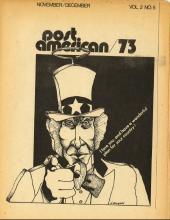It seems to be a characteristic of the Anglo-Saxon mind to enjoy inhabiting the “polar regions” of truth. If we could straddle both poles simultaneously, we would exhibit a healthy balance. Instead, we tend to “polarize”. We push some of our brothers to one pole, while keeping the other as our own preserve.
What I am thinking of now is not so much questions of theology as questions of temperament, and in particular the tension between the “conservative” and the “radical”.
By “conservative” we are referring to people who want to conserve or preserve the past, and who therefore are resistant to change.
By “radical” we are referring to people who are in rebellion against what is inherited from the past and who are therefore agitating for change.
In 1968 I attended as an “adviser” the Fourth Assembly of the World Council of Churches at
Let me now define my terms more precisely.
Read the Full Article

